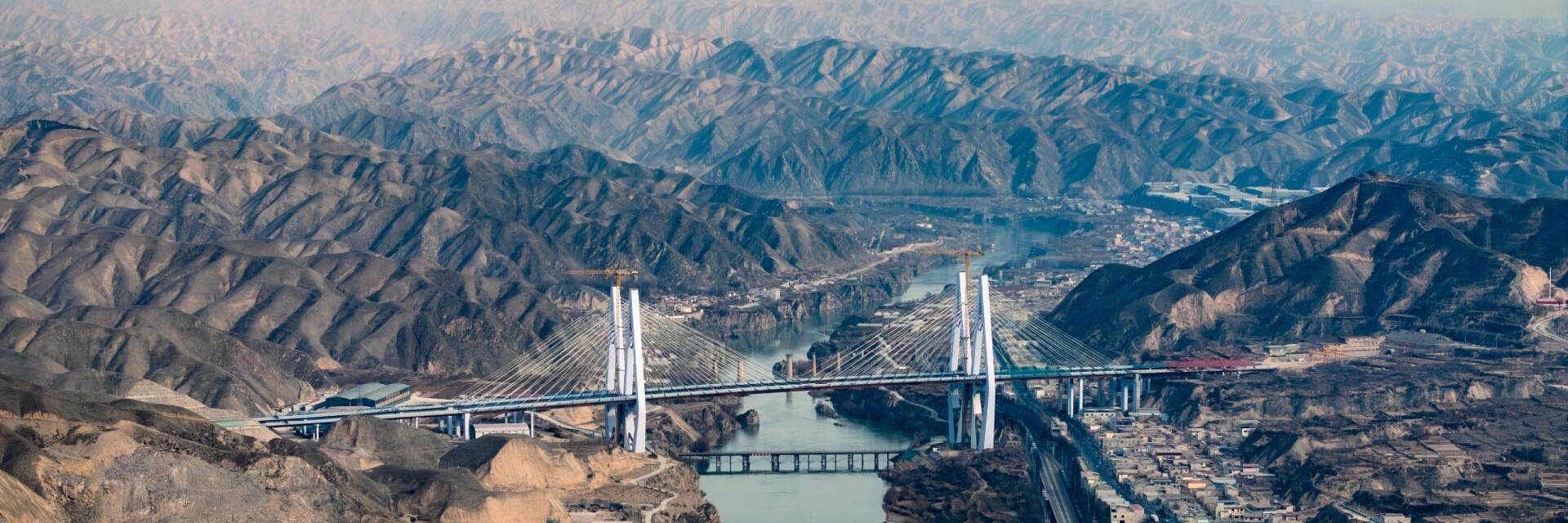
Gansu | Hexi Corridor | Hidden Gem on the Silk Road
By Julia
Hi, I’m Julia. As a seasoned traveler, I’ve explored many places, but Gansu stands out. This northwest province, just beyond Xi’an, is a Silk Road treasure. Its Hexi Corridor—a 1,200-kilometer natural passage—was once the lifeline for traders and monks. Today, it whispers tales of camel caravans and Buddhist art.
Gansu’s culture is a mix of Tibetan, Hui, and Han influences. Visit Dunhuang’s Mogao Caves, a UNESCO site with 1,000 years of Buddhist murals. Or hike the rainbow-colored Zhangye Danxia Landforms. From deserts to snow-capped peaks, Gansu is China’s best-kept secret. Let’s come walk the Silk Road’s legacy.
Lanzhou: Dynamic Heart of Gansu
Lanzhou, the capital of Gansu Province, is a vibrant mix of history and modernity. It serves as a major transportation hub and a perfect starting point for your Silk Road adventure. The city gracefully blends natural beauty with diverse cultures.
The Yellow River: China’s Enduring Lifeline
The Yellow River flows majestically through Lanzhou, offering breathtaking views. I enjoyed a boat ride, feeling the river’s immense historical significance. The Zhongshan Iron Bridge, also known as the first bridge over the Yellow River, is a notable landmark.
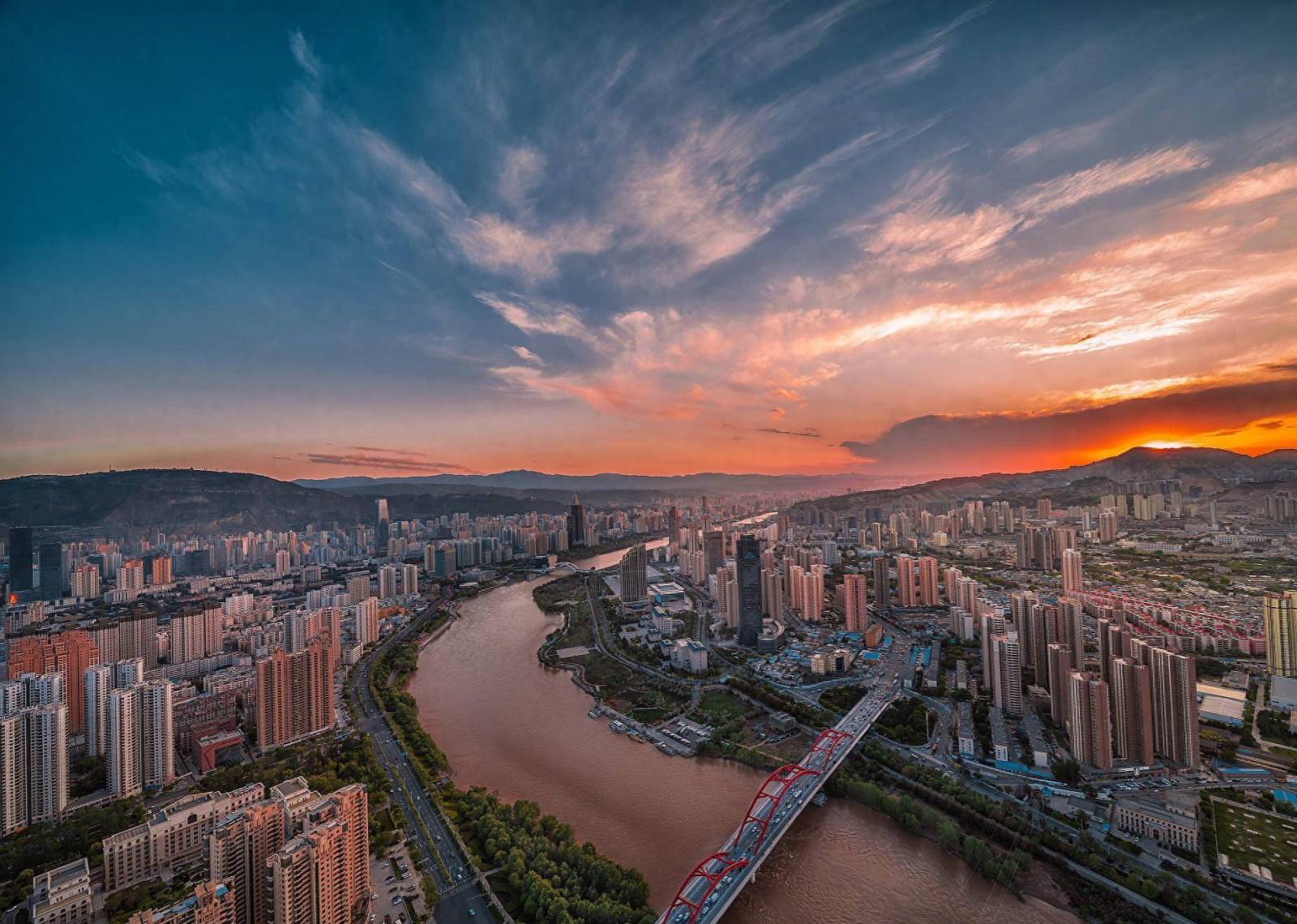
Gansu Provincial Museum: A Deep Dive into Heritage
The Gansu Provincial Museum provides a comprehensive look at local history and culture. It houses over 350,000 cultural relics, including the iconic “Galloping Horse” bronze sculpture. I spent hours admiring the painted pottery and treasures from ancient dynasties.
Bingling Temple Grottoes: Ancient Art by the River
Located near Lanzhou, the Bingling Temple Grottoes are among China’s major grotto sites. They feature ancient Buddhist grottoes and cliffside carvings. Reaching them by boat adds to the adventure, making it a memorable spiritual experience.
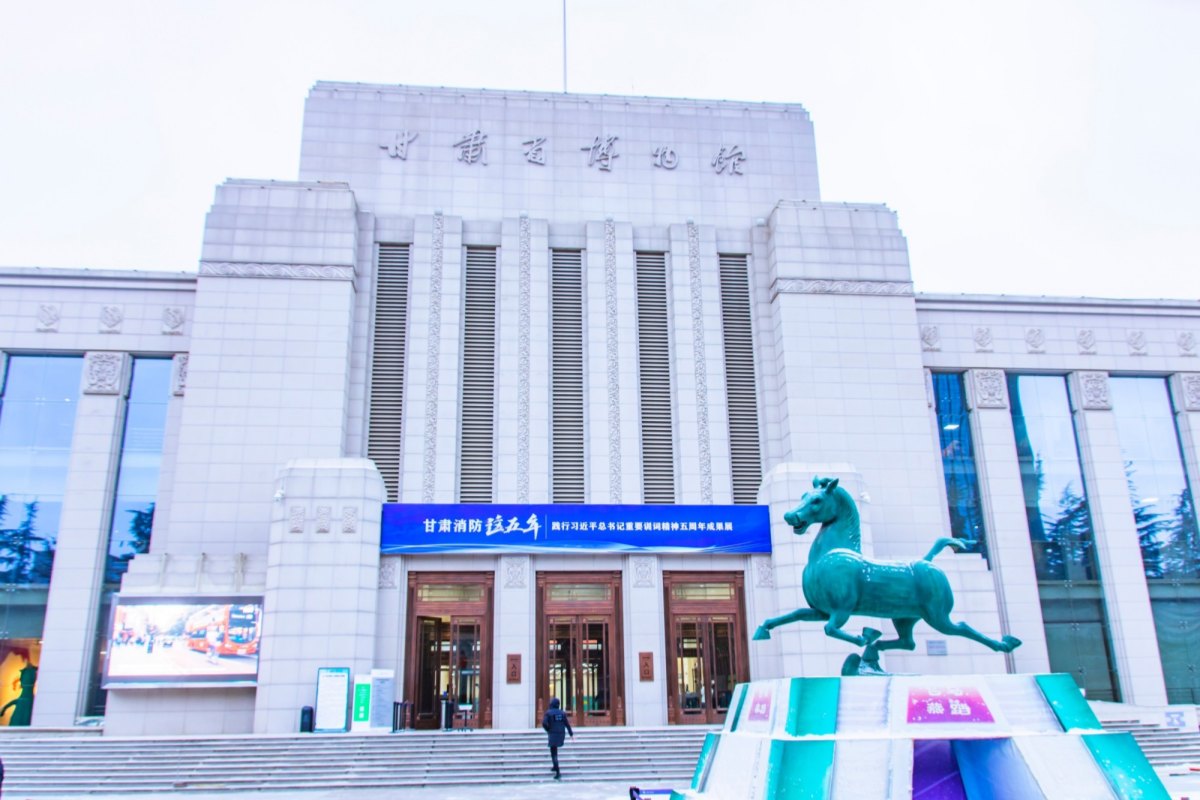
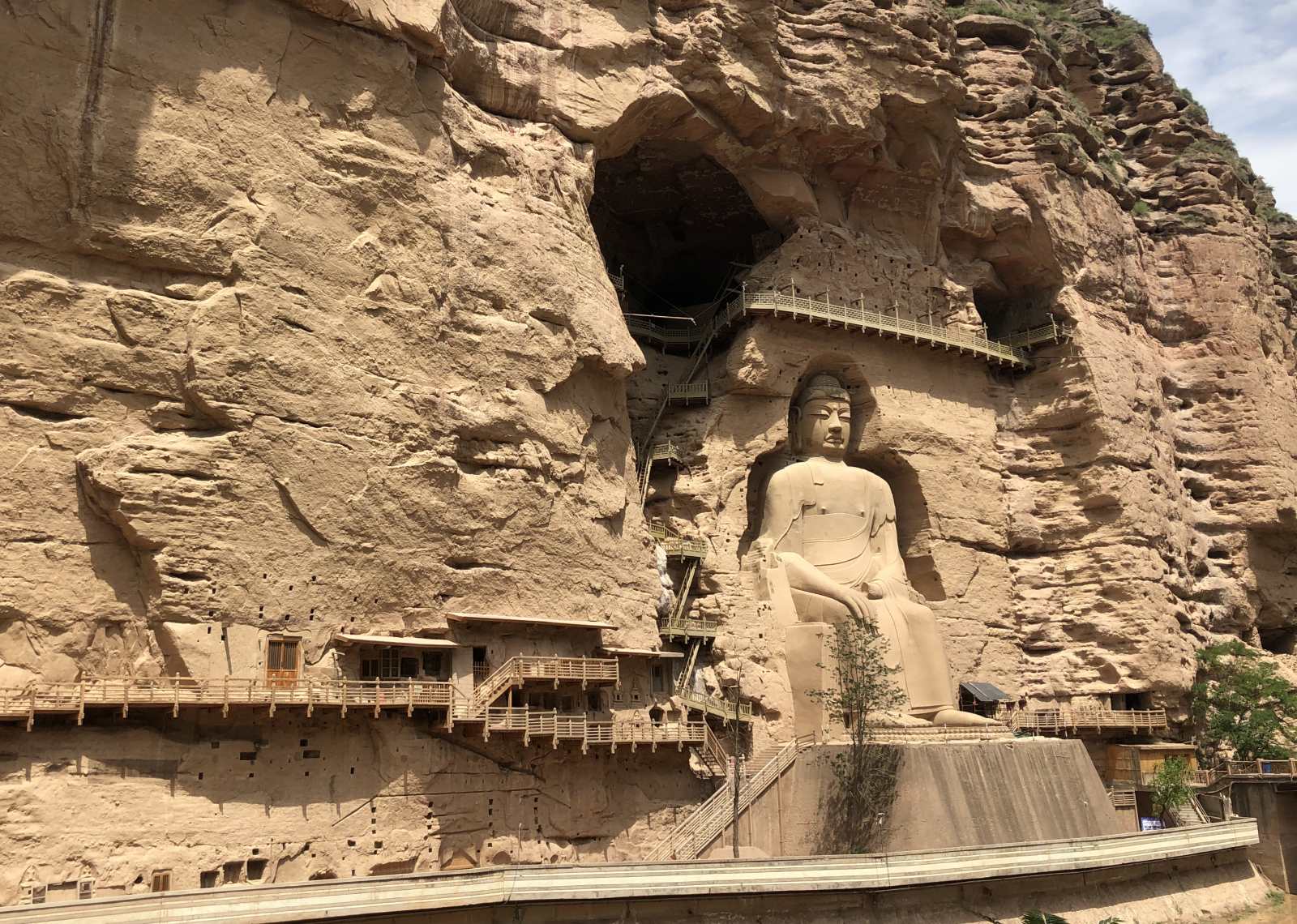
Dunhuang: The Oasis City on the Silk Road
Dunhuang, located at the western end of the Hexi Corridor, is a city steeped in history. It served as a crucial hub on the Silk Road. Its captivating allure comes from a unique blend of ancient art and dramatic desert scenery.
Mogao Caves: A Sanctuary of Buddhist Art
The Mogao Caves are a UNESCO World Heritage site and truly awe-inspiring. These grottoes house an immense collection of Buddhist murals and sculptures, spanning a thousand years of history. Walking through them, I felt transported back in time, witnessing an unparalleled “art museum in the desert.” Book your visit in advance, as daily quotas are strict.
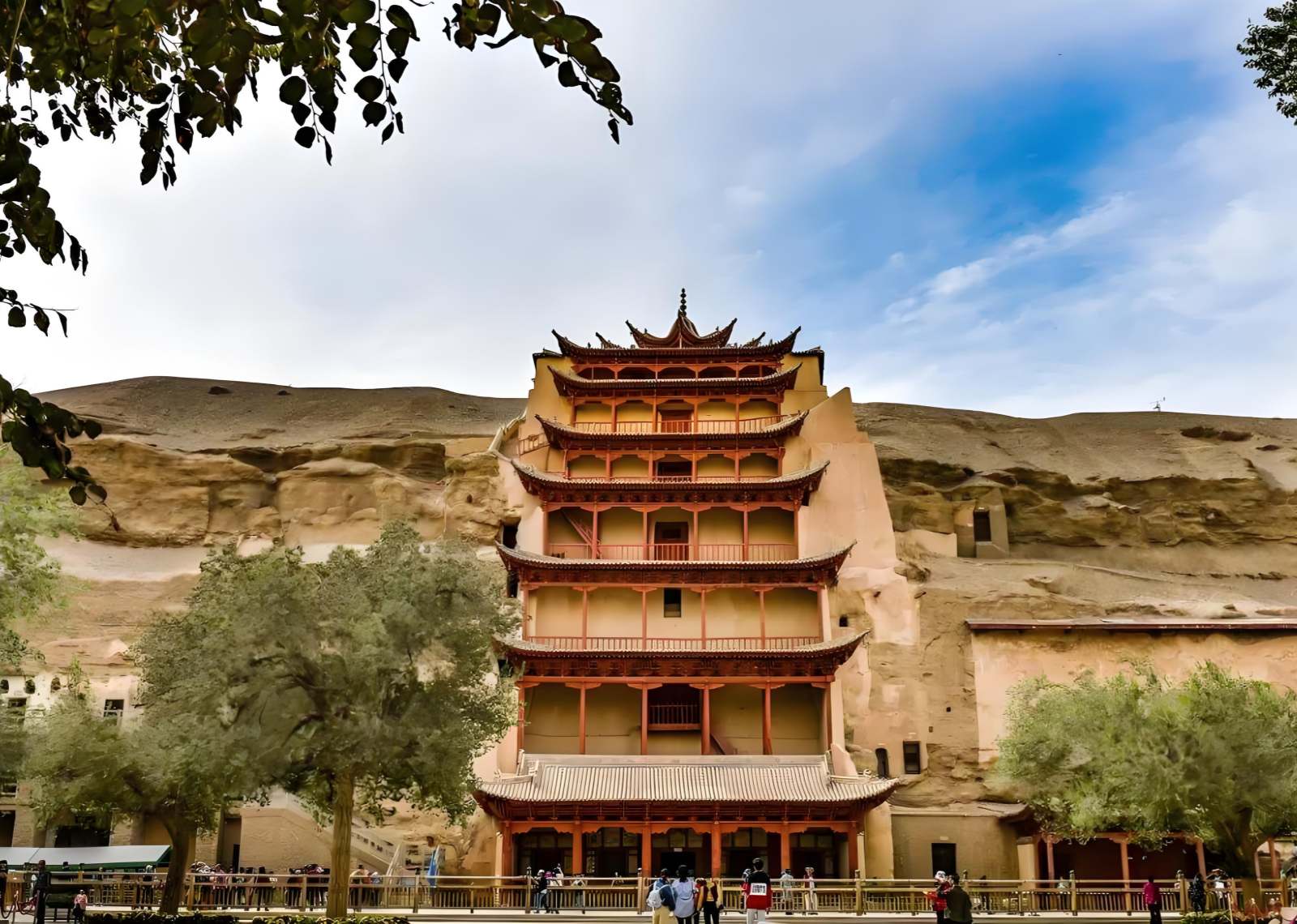
Mingsha Mountain and Crescent Spring: Desert’s Enchanting Duo
Imagine sand dunes that “sing” in the wind—that’s Mingsha Mountain. Adjacent to it, you’ll find Crescent Spring, a picturesque oasis shaped like a crescent moon. This serene spot is perfect for a camel ride. I suggest visiting at sunset for truly magical views.
Yumen Pass & Yangguan Pass: Sentinels of the Ancient Route
These ancient passes were vital checkpoints along the Silk Road. Exploring their ruins offers a powerful glimpse into Dunhuang’s strategic importance in ancient times. They stand as silent witnesses to centuries of trade and travel.
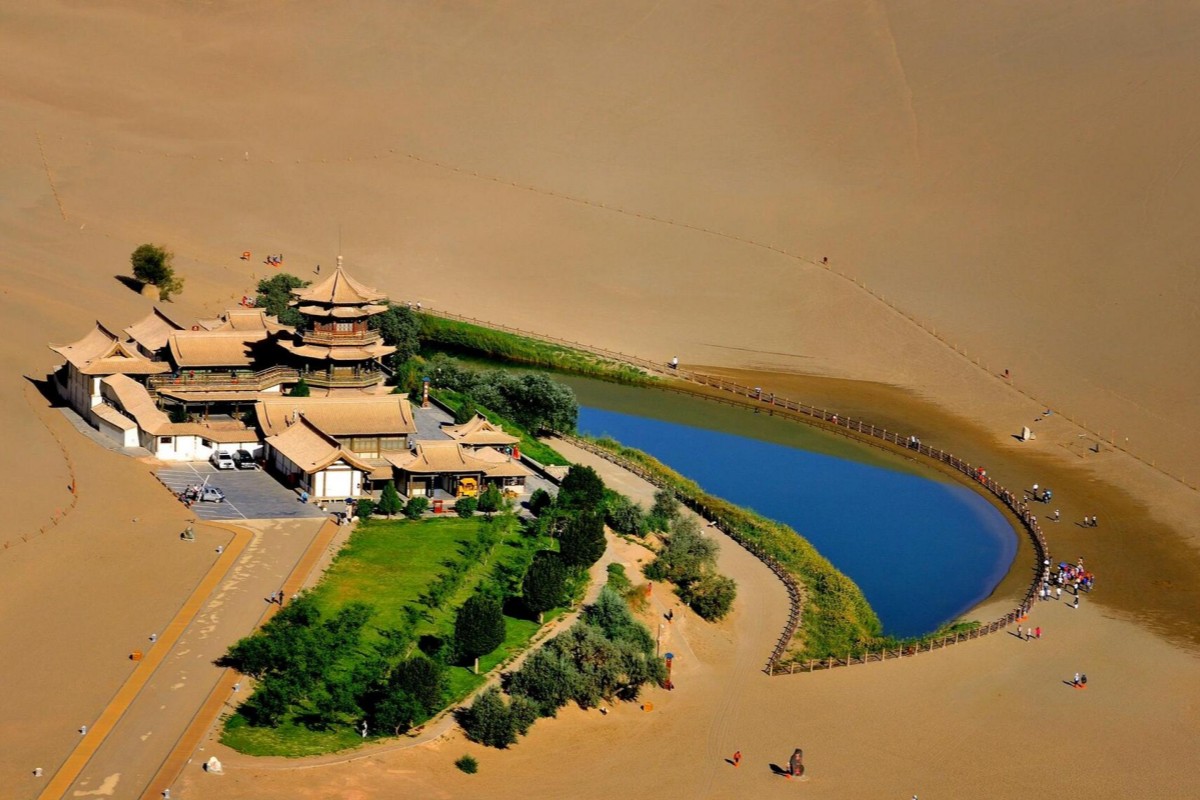
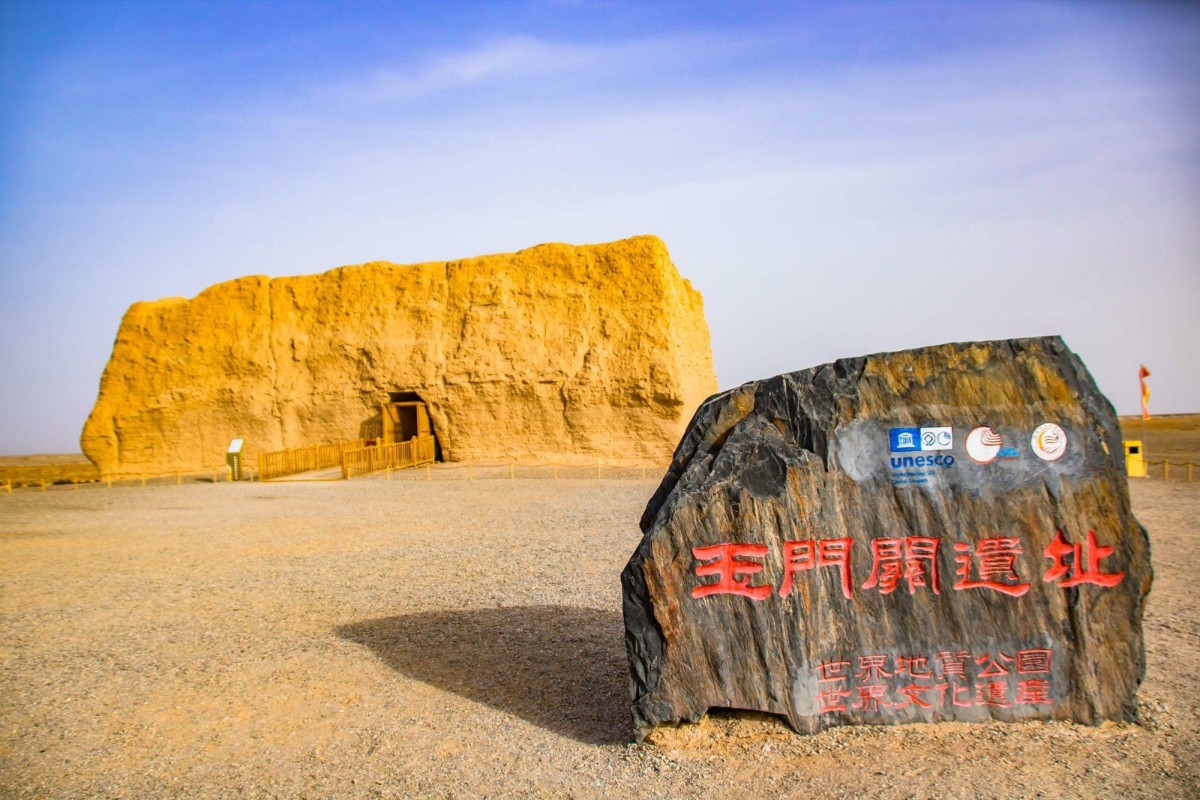
Zhangye: Nature’s Masterpieces
Midway along the Hexi Corridor lies Zhangye, a city renowned for its stunning natural beauty and rich history. Zhangye was strategically important, linking China to the Western Realm. It’s a place that will leave you speechless.
Zhangye Danxia National Geological Park: The Rainbow Mountains
This park, often called the “Rainbow Mountains,” is a UNESCO World Heritage site. Its vibrant colors and unique rock formations are truly breathtaking. Formed by millions of years of erosion, the layered reds, oranges, and yellows create an otherworldly landscape. I recommend timing your visit for late afternoon for the best light.
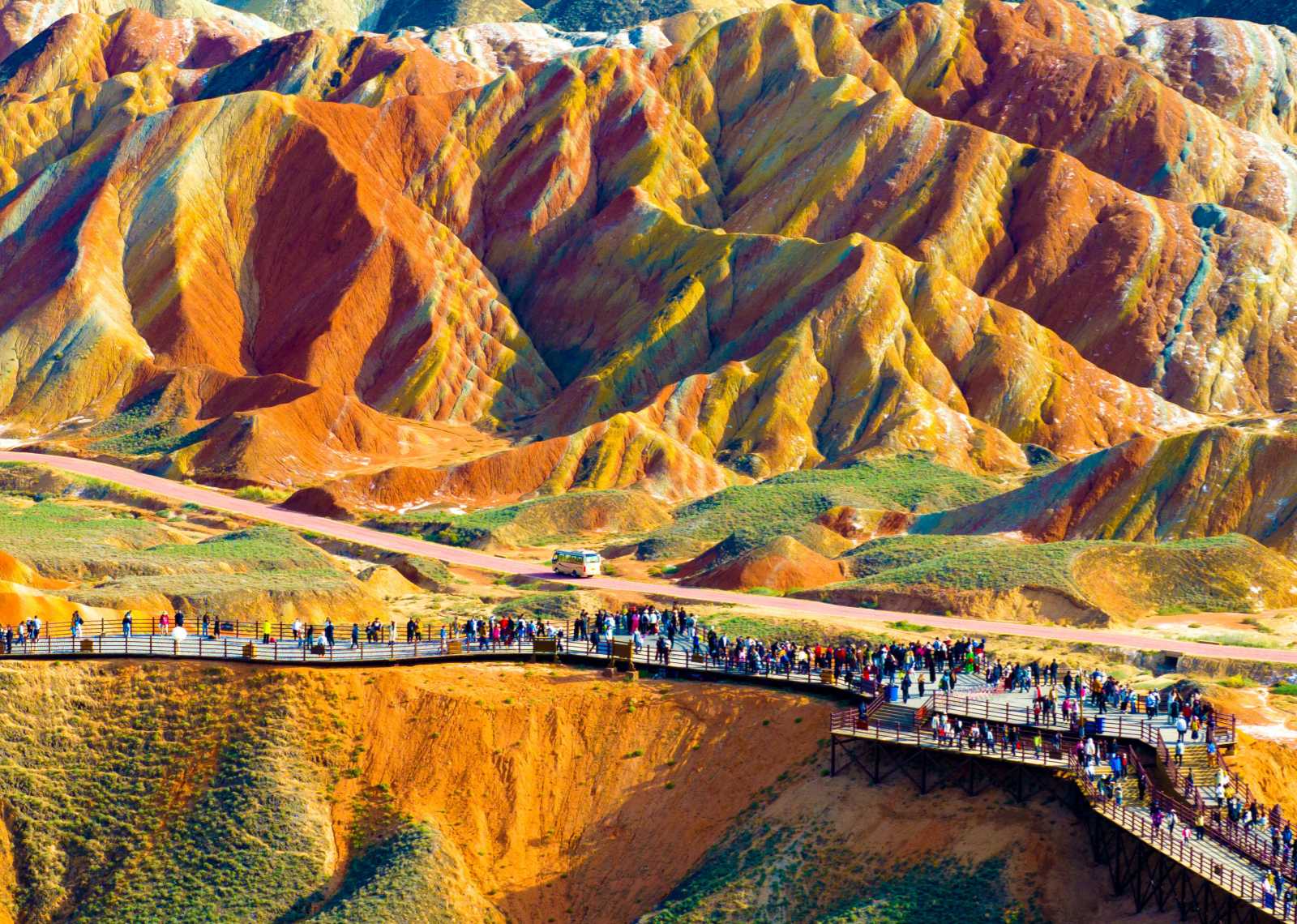
Giant Buddha Temple: A Colossal Legacy
In Zhangye, the Giant Buddha Temple houses a colossal sleeping Buddha statue. This temple is the largest architectural relic in Gansu Province from the Western Xia period. It’s a peaceful place to reflect and learn about the region’s Buddhist heritage.
Mati Temple Grottoes: Cliffside Carvings
The Mati Temple Grottoes are another highlight. These cave carvings are situated by the cliffside, featuring exquisite details and murals. They showcase the extraordinary craftsmanship and spiritual devotion of the past.
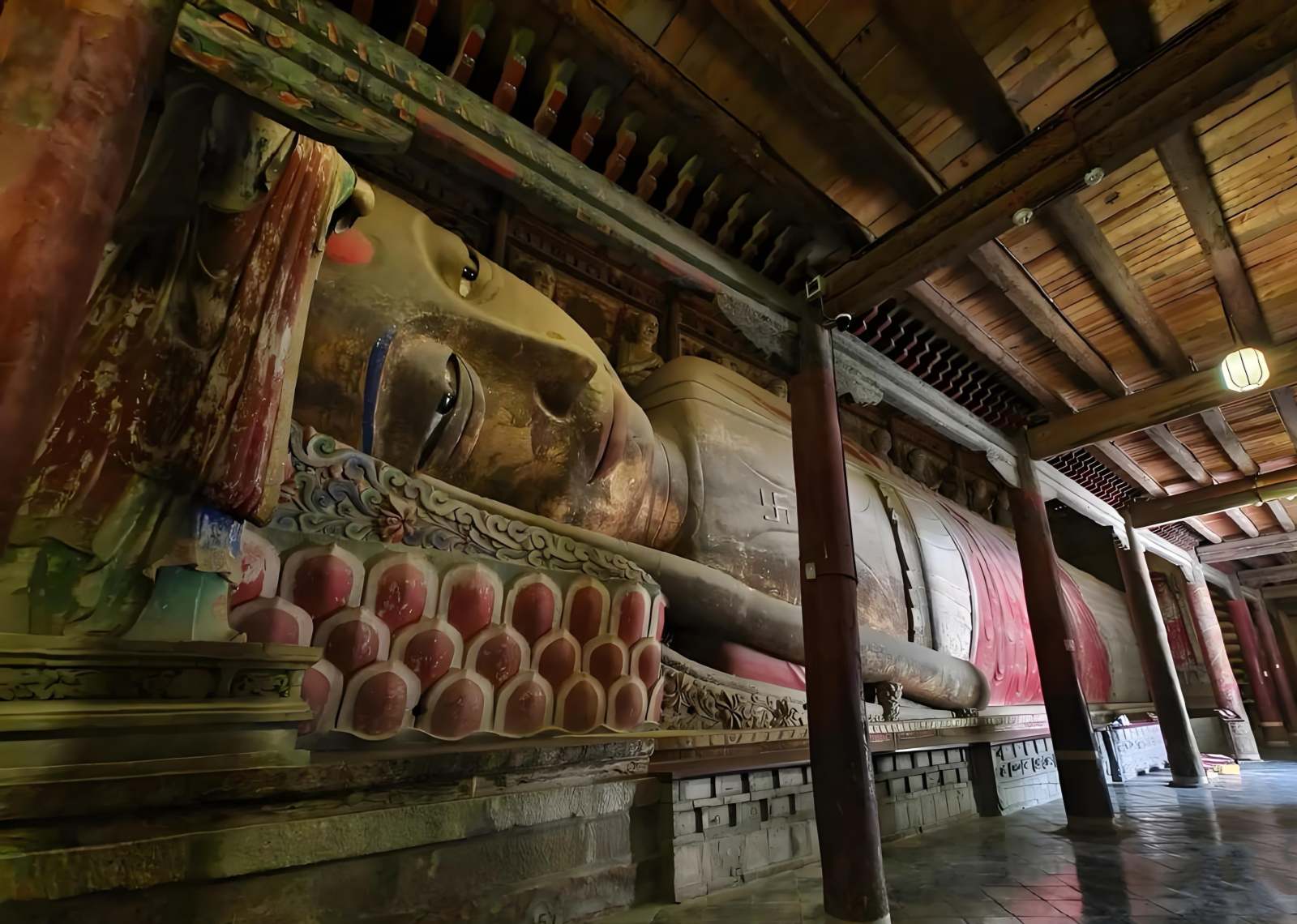
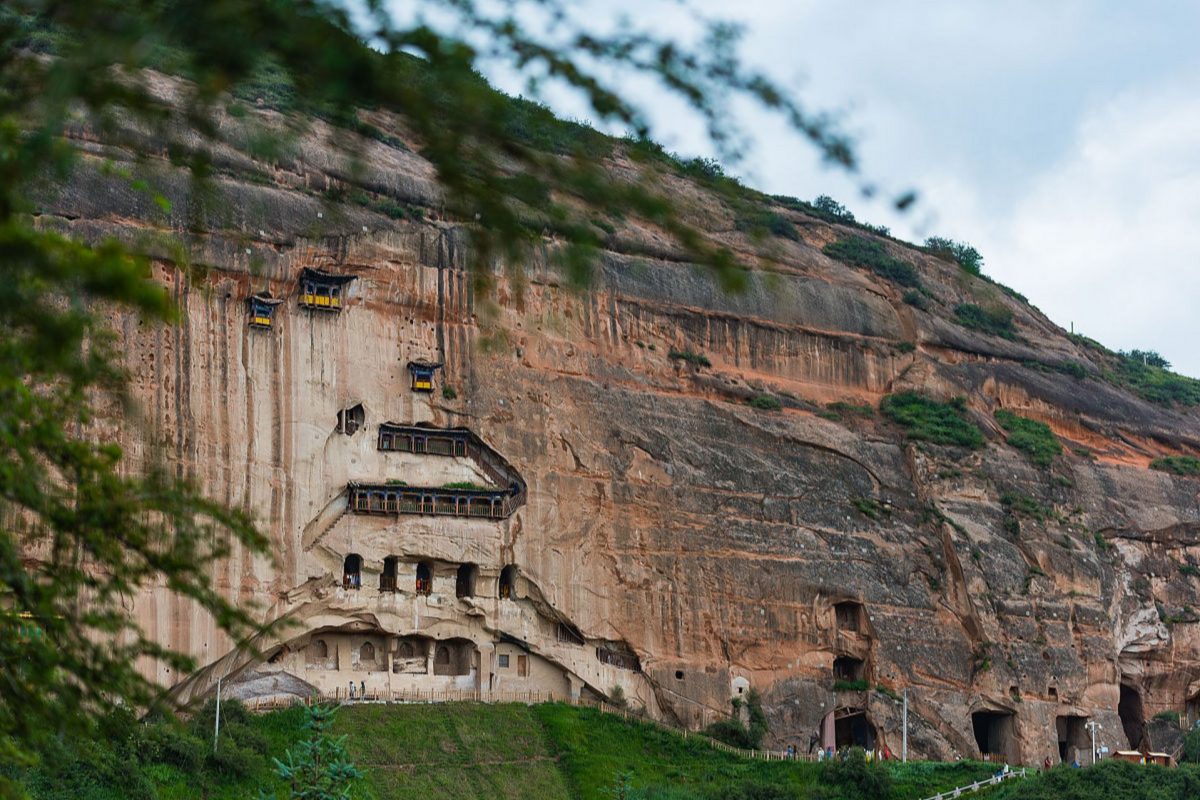
Xiahe: A Haven of Tibetan Buddhism
Xiahe, a small town nestled in southern Gansu, offers a profound cultural immersion. It’s a significant stop for those interested in Tibetan Buddhist culture, providing a cooler and quieter alternative to more crowded tourist spots.
Labrang Monastery: A Spiritual Epicenter
The Labrang Monastery is one of the largest Tibetan Buddhist monasteries outside Tibet. Walking through its sprawling complex, I felt a deep sense of tranquility. It’s an excellent place to learn about Tibetan traditions and witness daily monastic life.
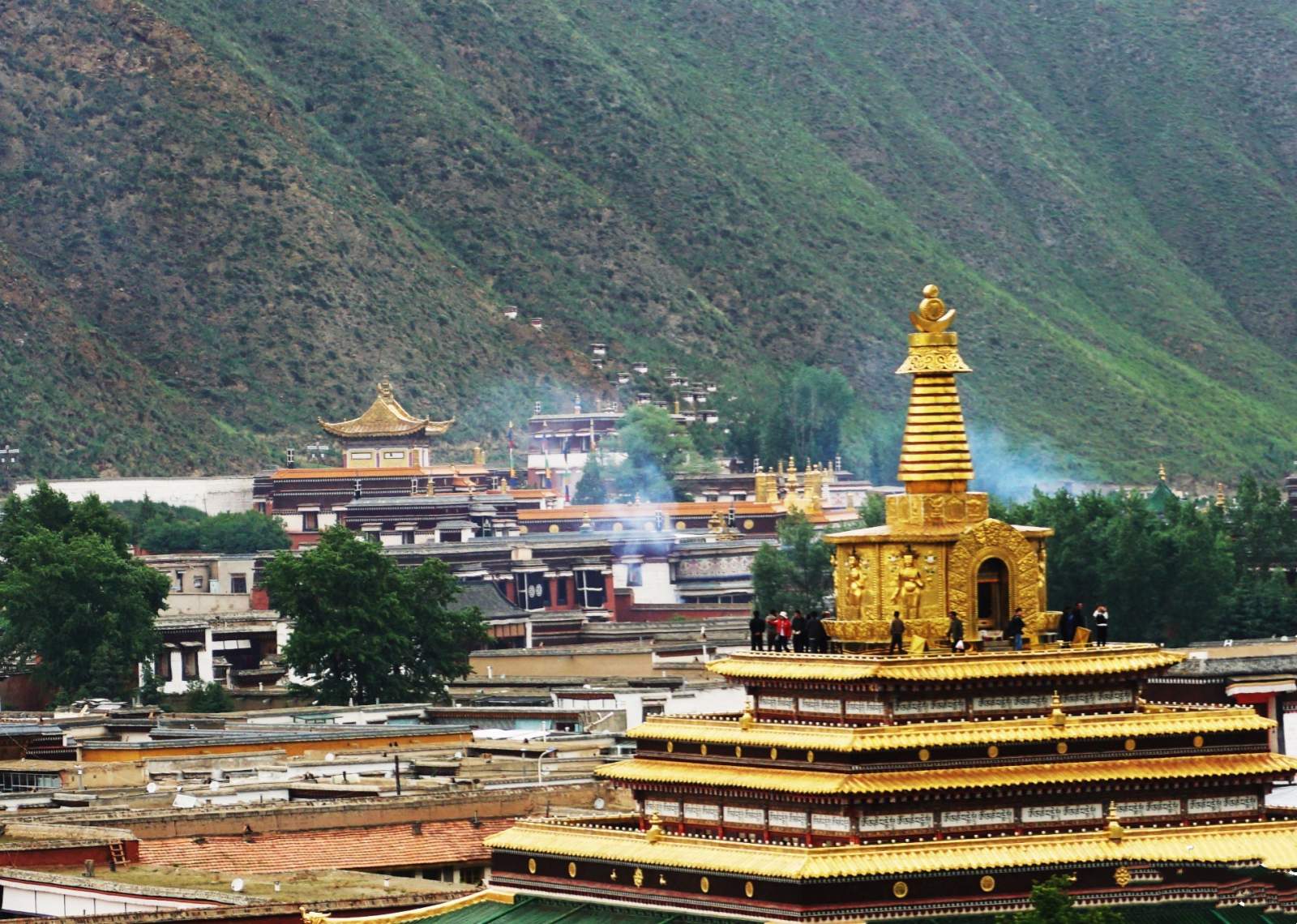
Sangke Grasslands: Nomadic Serenity
Don’t miss the Sangke Grasslands near Xiahe. This lush, green landscape is dotted with yaks and Tibetan villages. It’s the perfect spot to relax, enjoy the fresh mountain air, and experience nomadic beauty. The vast meadows stretch invitingly.
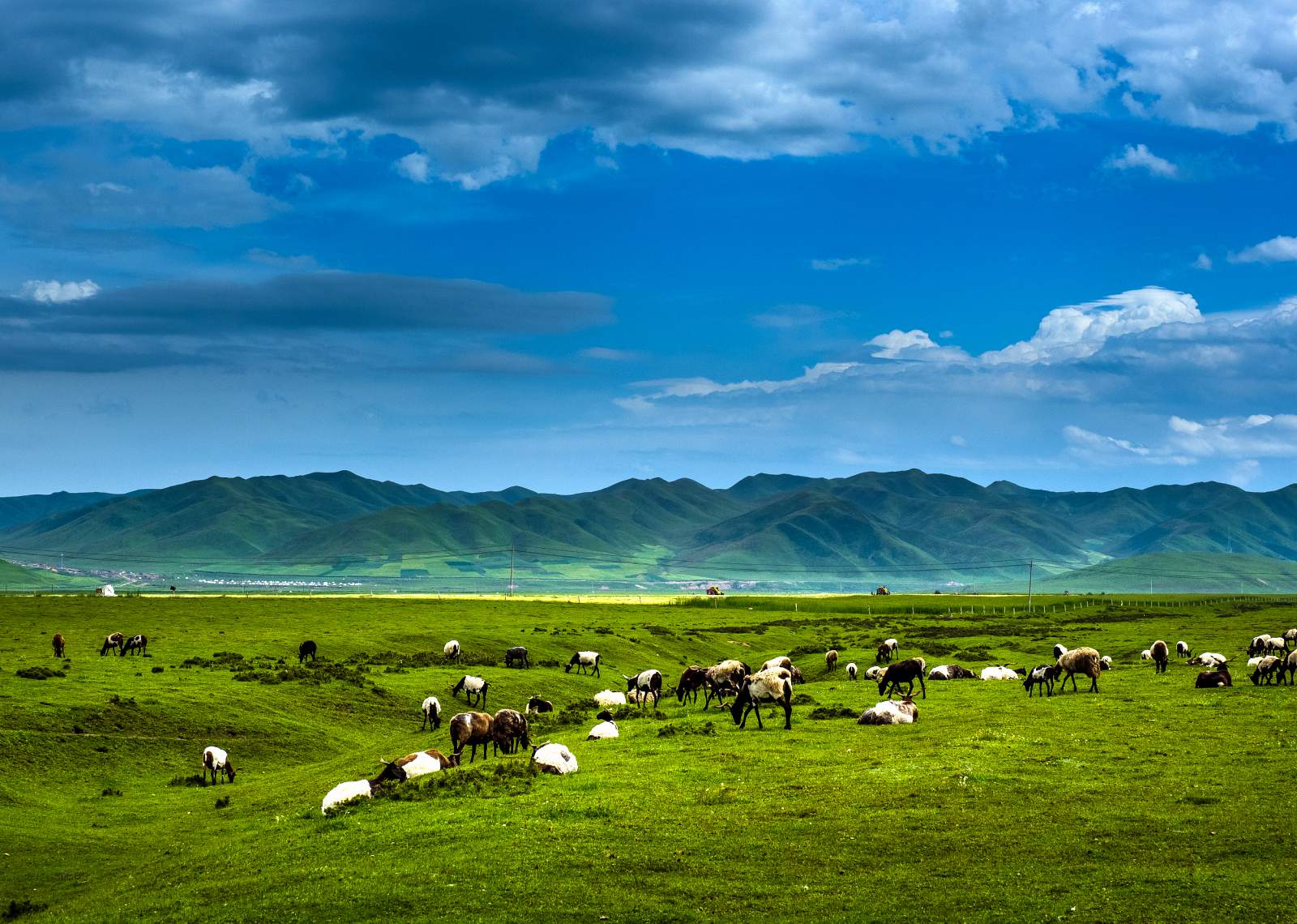
Wuwei: Echoes of the Han Dynasty
Wuwei is another hidden gem in Gansu, offering a compelling mix of history and cultural insights. As one of the four commanderies of Hexi, it played a crucial role in ancient trade along the Silk Road.
Leitai Han Tomb: Home of the Flying Horse
Explore the Leitai Han Tomb, famously where the “Galloping Horse” bronze sculpture was discovered. While the original is in the Gansu Provincial Museum, the site itself tells a captivating story of Han Dynasty life. Interactive displays bring the past to life.
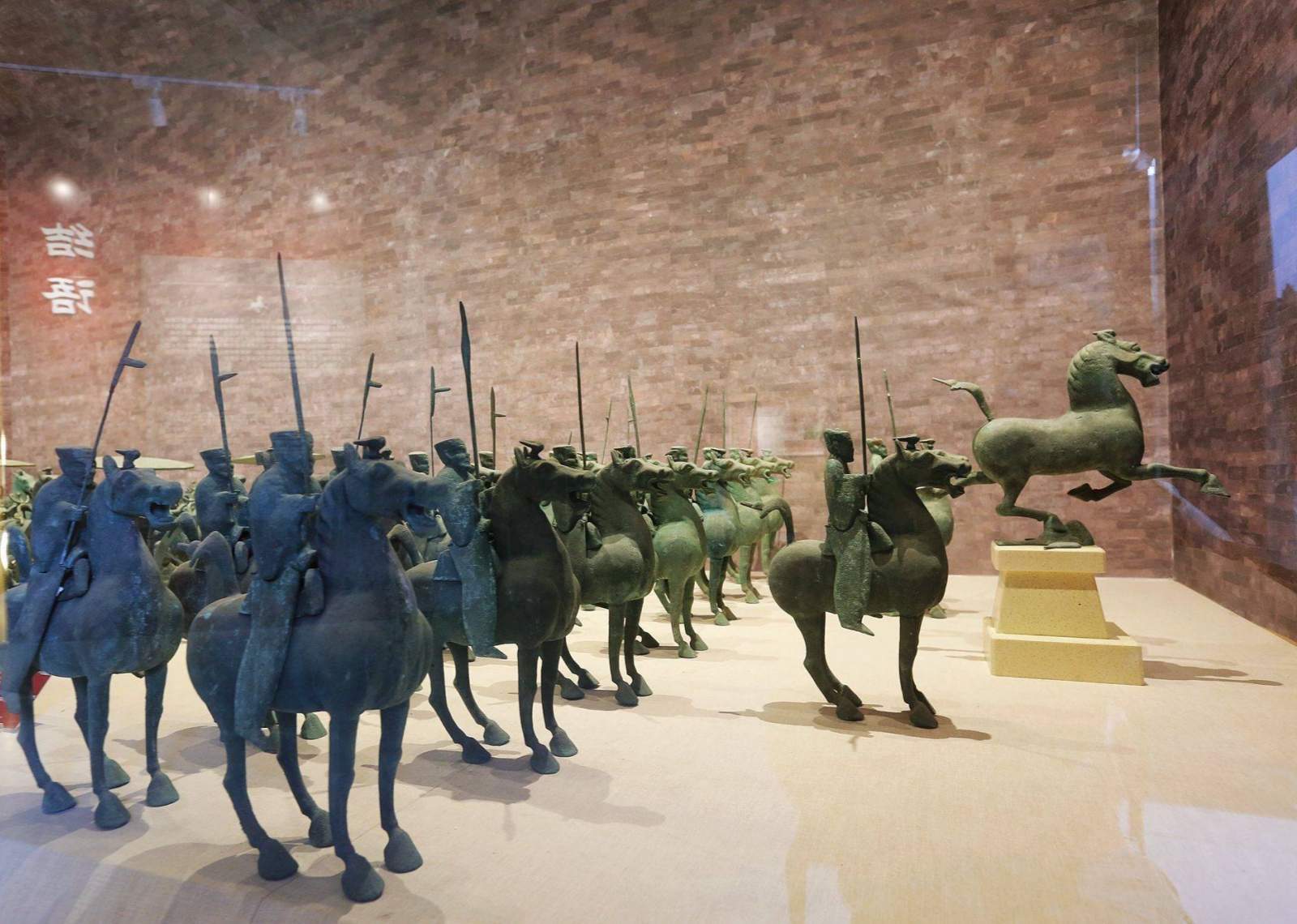
Tiantishan Grottoes: A Glimpse into Ancient Devotion
The Tiantishan Grottoes are a lesser-known but equally impressive site. These ancient caves are filled with Buddhist carvings and statues. They offer a profound glimpse into Gansu’s spiritual past and the early development of Silk Road art.
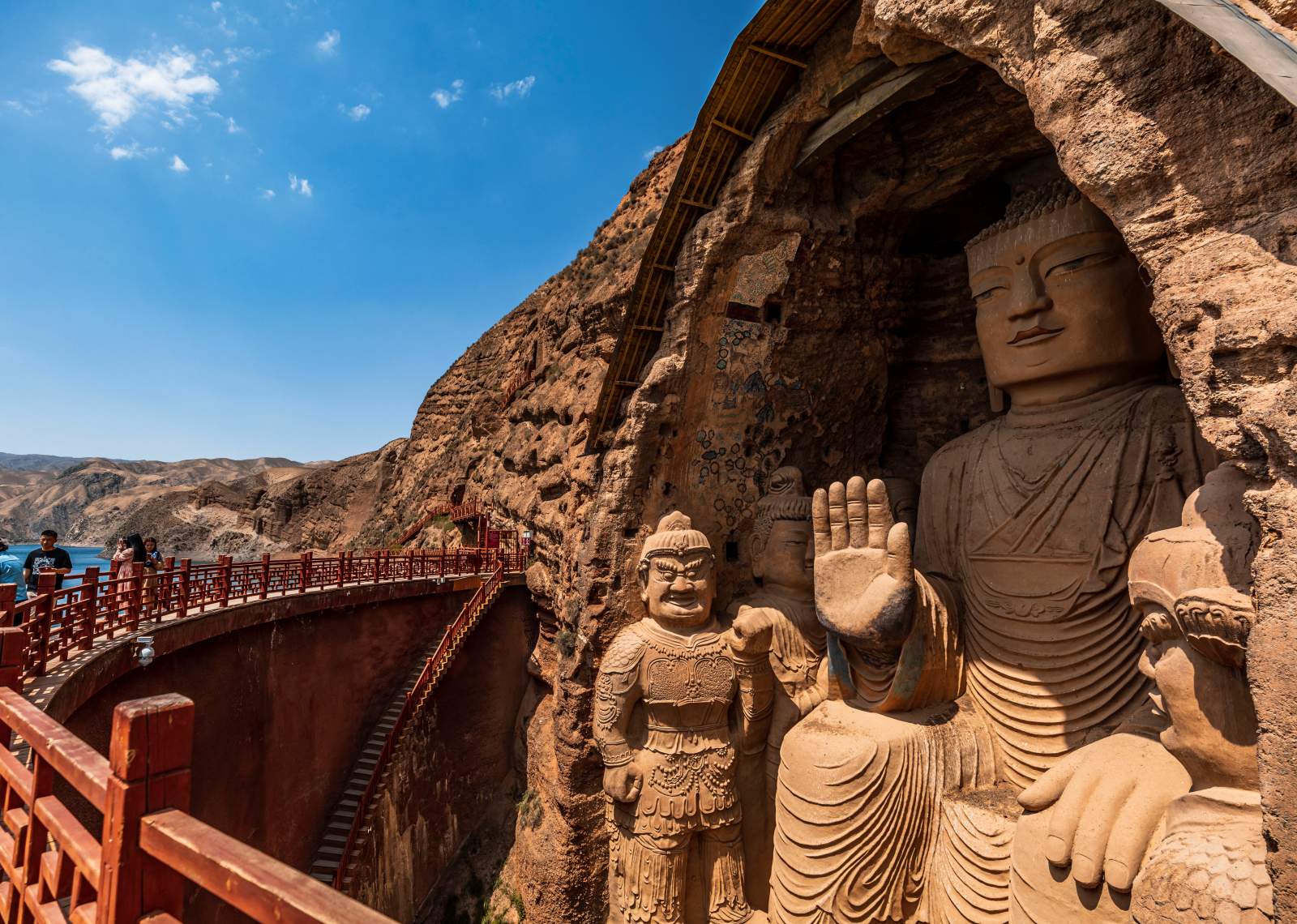
Gansu and its Hexi Corridor are far more than just a historical footnote. They represent a vibrant, diverse region waiting to be explored. From the ancient artistry of the Mogao Caves to the surreal landscapes of Zhangye’s Rainbow Mountains, and the spiritual tranquility of Xiahe’s monasteries, Gansu offers a profound travel experience. It’s a journey that connects you deeply with the legacy of the Silk Road, providing a unique blend of adventure, culture, and breathtaking natural beauty. This hidden gem promises an unforgettable experience for every traveler, beckoning you to discover its endless wonders.
Popular Silk Road Tours Including Gansu: